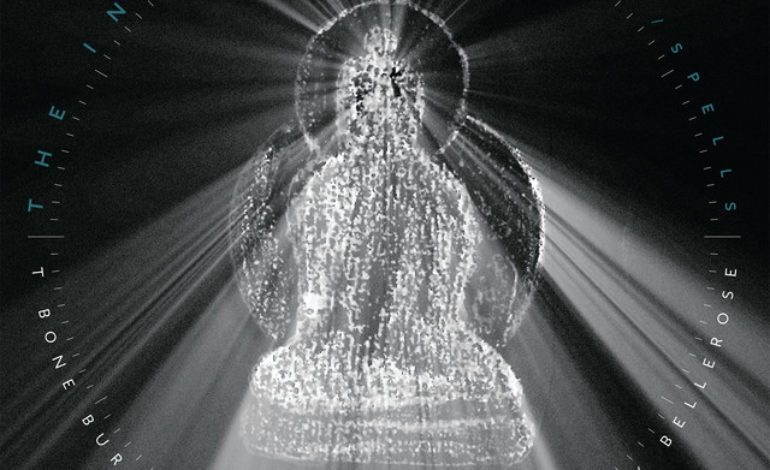

An improvement, but still not fully realized
T Bone Burnett never has to release another album, as he’s already got enough acclaim from soundtracks to production work. Hit by a surge of inspiration surrounding technology and its detrimental effects, Burnett has teamed up with session percussionist Jay Bellerose and frequent collaborator Keefus Ciancia for a trilogy. The series’ second entry continues Burnett’s dabbling into electronics and ambient music. Though the results are more fleshed out and not as taxing, it’s still missing that final spark into greatness with some weak writing and poor use of reprises that prevent its concepts from being fully realized.
Burnett’s work in soundtracks proved he could fuse traditional folk with more cinematic soundscapes, and The Invisible Light: Spells does a better job implementing this vision than The Invisible Light: Acoustic Space, the first in the trilogy. Both records use musical and lyrical repetition to sell drudgery and dystopia, literally on “Realities.com” and “Casting a Spell,” but the instrumentation on The Invisible Light: Spells has slightly more heft. For one, Burnett is a fine singer, but he’s no longer doing it alone, with well-placed female backing vocals adding to the hypnotizing feel of “Casting a Spell” or the creepily happy vibes of “I’m Starting a New Life Today.”
Right from the militaristic percussion, fat bass and glitzy synths of the opening “Realities.com,” The Invisible Light: Spells offers more color and punch. It’s still dark and trance-like with plenty of unsettling electronics underneath the surface, but Burnett brings in more guitar and horns and gives the drums more presence to prevent the songs from falling into musical wallpaper. “You May Leave, But This Will Bring You Back” is populated by glittering arpeggios, “I’m Staring A New Life Today” turns up the tension with angry horns and “A Better Day” sells the melancholy through reverb-soaked guitar picking. Burnett also goes back to his folk roots for “Mother Cross (We Think We Think),” a welcome change of pace with intimate and resonant acoustic guitars.
A boring apocalypse brought along by technology is a familiar vision, and Burnett’s stellar performance breathes character into his polemics. “Realities.com” leans into zaniness by playing up fascist ideology through a series of almost-PSAs, and Burnett’s delivery illustrates the greasy sweat on his salesman brow as he manically tries to sell the listener on “never hearing anything you disagree with.” “Casting a Spell” dips into history by bringing up Edward Bernays, the father of public relations, to add credence to its malicious portrait of advertising. Again, the repetitive lyrics imbue both a brainwashing and beat-down quality to Burnett’s ramblings, especially his unhinged performance brow-beating the listener into acceptance on “Casting a Spell.”
Sadly, intentionally repeating weak lyrics only highlights their weakness. “Mother Cross (We Think We Think)” works as a musical palette cleanser, but the trick of using paradoxes to highlight a sense of frustration a la the lyrics “Take your time, hurry up” from Nirvana’s “Come as You Are” and other ’90s lyrics have been done better elsewhere. It’s vague in a way that is not elevated by Burnett’s most earnest performance. “A Better Day” engages in a lot of what made The Invisible Light: Acoustic Space difficult, as Burnett lets the final two minutes just fade out to no interesting effect and wastes the pretty guitar work. The lyrics go for more scattershot imagery that does not add up to much and the oily, compressed vocal production does not help.
Reprises, especially on a concept album, reinforce or challenge themes. The reprise of “A Better Day” differs from the original’s heavy reverb strokes and oily vocals by ending the record on a serene note. It works either as the final ray of hope or the hypnotizing bliss of technology entrapping us. Sadly, the other reprise, “Mother Cross (We Think We Think),” suffers from the uninspiring writing of its spawn without offering a new take. Perhaps it’s meant to sound timider, but the well-weathered delivery of the original was a far more compelling take. The novelty of the original’s Americana backdrop is gutted for more fine-sounding, but familiar electronics.
There’s a clear improvement on what did and did not work on The Invisible Light: Spells, yet the writing still has shortcomings, and the reprises need more thought. At this rate, the third album in this trilogy should be a masterpiece if Burnett can keep the music working and groom a complete track list of consistent writing.
